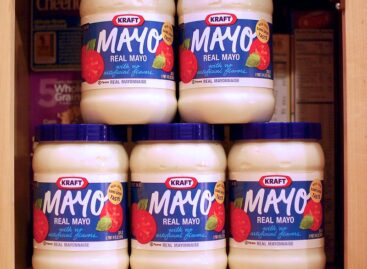COVID-19: In quarantine abroad
Four FMCG managers talked to our magazine about the days they had spent in quarantine abroad during the coronavirus pandemic.

Guest author: Dr. Klára Csík
owner-MD
Karrier&Stílus
Eszter Rajz (from now on abbreviated as RE) works for Kraft-Heinz in Costa Rica (but she has teams in Panama and Columbia, too). Virág Simon (hereinafter referred to as SV) manages PRO and Digital units in Milan for Royal Canin. Zoltán Novák (called NZ from now on) is senior director of Mondelez for global and international customers in Zürich. Ákos Magyari (abbreviated as MÁ) lives in Cracow and is the director of Heineken’s Global Shared Services.
![]() How was COVID-19 communicated in your country?
How was COVID-19 communicated in your country?

Eszter Rajz
managing director
Kraft–Heinz
Middle- and South-America
RE: – Since we are in the food business, from January we were closely monitoring the developments in China and Europe. By March, when the first person tested positive for coronavius in Costa Rica, we already had a scenario. The borders were closed from 20 March.

Virág Simon
PRO & Digital manager
Royal Canin
SV: – Italy was one of the countries that suffered the biggest blow from the coronavirus disease. People were only allowed to leave their home once a week to do the shopping. Social media use increased by 70 percent in this period.
NZ: – In Switzerland communication about the virus started slowly and with difficulties. COVID-19 was spreading fast, so strict measures were imposed soon and after a while information providing was fast and accurate.
MÁ: – We were watching how things were going in both Hungary and Poland. At the beginning, Poland was only focusing on health-related topics, which was very important in making the citizens understand how important it is to keep the rules.
![]() What was the general mood during the pandemic and how are people feeling now?
What was the general mood during the pandemic and how are people feeling now?
RE: – People accepted the fact that many things have changed due to the pandemic: they were wearing the face mask and using the hand sanitiser. In the region Costa Rica managed the situation the best, so the country managed to flatten the curve quickly.
SV: – The lockdown lasted for 14 weeks but Italians managed to remain cheerful and optimistic. There were many campaigns organised, musicians and actors entertained the people who had to stay at home.

Zoltán Novák
senior director
Mondelēz
NZ: – Switzerland is a multicultural country, where people can manage problems together. The Swiss trust their leaders, and the state and the banks gave help to those who needed it to start things over.
MÁ: – Polish people are rather relaxed and they took the new rules seriously. COVID-19 had a positive influence on families, who could spend more time together. Cooking at home became very trendy.
![]() How did the coronavirus affect your company and the work you do?
How did the coronavirus affect your company and the work you do?
RE: – In the first month one crisis consultation followed the other. Working from home is difficult for me as I used to fly to neighbouring countries weekly. It seems that the home office will stay with us until the end of the year. This kind of work is efficient but rather monotonous. The company has managed the situation well and food supply is continuous in the region.
SV: – From 1 June sales representatives are allowed to visit partners. Office work is scheduled to start on 1 September. I got used to working from home, but I really miss seeing my friends. Luckily, people are slowly starting to gather again. It is difficult to remain motivated, while the working day has become 24 hours long.
NZ: – The Swiss support each other in every field of life. Office work started on 15 June, but 50 percent of the work is still done from home – employees can decide themselves which form of work they prefer.

Ákos Magyari
managing director
Heineken Shared Services
MÁ: – Already before the pandemic, the share of home office work was 30 percent at our company. For us India was the biggest challenge – some of our operations had been outsourced to this country. There 200 employees had no laptops and only 10 percent of workers had an internet connection. The first three weeks were critical, but things turned out well afterwards. //
Related news
Kraft Heinz seeking to reshape portfolio
The Kraft Heinz Co. is considering reshaping its product portfolio.…
Read more >Mondelēz To Launch Limited-Edition Selena Gomez Oreo Cookies
Mondelēz International is launching limited-edition Selena Gomez Oreo cookies, which…
Read more >Kraft Heinz To Invest $3bln In Upgrading US Manufacturing
Kraft Heinz is spending $3 billion to upgrade its US…
Read more >Related news
GKI analysis: Why do Hungarian households live more poorly than anyone else in the EU?
Imagine that the residents of every EU country shop in…
Read more >KSH: industrial producer prices decreased by 0.7 percent in May 2025 compared to the previous month, and increased by an average of 6.9 percent compared to a year earlier
In May 2025, industrial producer prices were 6.9 percent higher…
Read more >Consumption drives the economy
According to the latest forecast by the Balance Institute, the…
Read more >






